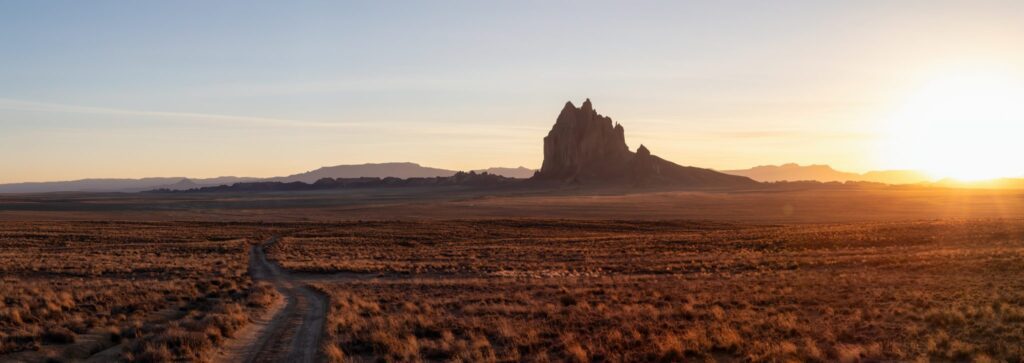Welcome to the State & Local Dispatch, a quarterly newsletter with key state-level updates that impact the outdoor industry and our communities.
For the most part, state legislative sessions have wrapped up for 2022. I am pleased to report that a few states have passed legislation that will really move the needle when it comes to outdoor access, recreation funding, outdoor education, and climate sustainability.
I have spent a lot of time on the road recently and wanted to share a few takeaways. In short: The state of local outdoor economies is strong!
Also, I would love to ensure that OIA members have the resources to learn more about and advocate for state and local policies that matter to the industry and our communities. I am developing an informal state advocacy working group that will be open to all members who have an interest.
Always reach out to me with any questions, ideas for collaboration, or simply to chat about state policy.
Hope to see you all out on the trails this summer.

Rebecca Gillis
State & Local Government Affairs Manager
Policy Highlights
Great Maryland Outdoors Act
State-level policymakers, the executive branch, outdoor stakeholders, and state agencies made an impressive, concerted, and effective effort to better fund state parks, the Department of Natural Resources, and personnel. To learn more, I sat down with state officials, including Daryl Anthony, executive director of the Maryland Office of Outdoor Recreation. Read the full interview here.

Other Legislative Trends
States are still contending with irregular budgets due to federal COVID-19 response dollars and other circumstances. Some states invested the additional capital in public lands and waters, while others moved forward with increased funding for environmental and outdoor education. Reach out to me if you want to learn more.
Trail Mix – More Updates, Resources, and Opportunities
NCEL ArcGIS StoryMap
Please take a moment to review this informative resource created by our friends at the National Caucus of Environmental Legislators. This map highlights key legislation across the U.S. that supports the health of public lands and waters, sustainability, increasing outdoor access, and more. The tool also introduces legislators who identify as outdoor allies at the state level. My goal is to continue collaborating with OIA members, NCEL, and other groups to ensure that we continue to contribute to the advocacy efforts on this map.

America the Beautiful Updates
The America the Beautiful Challenge kicked off earlier this quarter, and the National Fish and Wildlife Foundation (NFWF) will accept funding applications until mid-July. I urge relevant partners, including states, tribes, local governments, and other eligible entities to apply for this first round of funding.
Not sure what the America the Beautiful (AtB) Initiative is or how our industry might support it? I have prepared a briefing for those interested in learning more.
Join My State-Based Policy Advocacy Working Group
Please email me if you are an OIA member interested in engaging further in state and local policy advocacy. I will be convening a small working group to grow the muscle and influence behind our state and local efforts and as a learning opportunity for those interested. All politics are local, after all!
On the Road
North Carolina Outdoor Economy Conference
OIA’s government affairs team traveled to Cherokee, N.C., to attend the Outdoor Economy Conference in March. The conference is the largest gathering in the United States, focusing on building, growing, and sustaining outdoor economies. Main takeaways: There is a significant appetite from communities across the country wanting to learn how to develop or strengthen outdoor economies in rural, urban, and suburban communities. OIA will continue to advocate for policies that support public investment in outdoor recreation amenities, sustainability, outdoor access, economic development, workforce development, and other key inputs to continue the growth of sustainable and vibrant outdoor communities.

Nevada Outdoor Convenings
In partnership with Nevada’s Division of Outdoor Recreation and the National Caucus of Environmental Legislators (NCEL), OIA hosted two events in Nevada to showcase the state’s outdoor economy and outdoor ecosystem. Attendees included three state assemblymembers and Nevada’s lieutenant governor. A huge shoutout to Patagonia and REI for hosting receptions in Las Vegas and Reno!
Colorado Outdoor Industry Leadership Summit
I attended the Colorado Outdoor Industry Leadership Summit (COILS) in Crested Butte, Colo., in May. The summit featured excellent panels from OIA members like QuietKat, as well as higher education partners, land management agencies, and others. Main takeaways: The event formally introduced Colorado’s new director of the Outdoor Recreation Industry Office, Conor Hall (welcome, Conor). COILS also highlighted the many inputs needed to build strong economies prioritizing recreation as an economic driver: higher education and workforce development partners, economic development organizations, nonprofit partners, state and federal land managers, anchor outdoor businesses and startups, an ecosystem with funding for outdoor businesses of all types and scales, and committed community partners.
National Governors Association Outdoor Recreation Learning Network Policy Institute and Confluence Accords Signing
OIA’s government affairs team, alongside our research director, Kelly Davis, met in Little Rock, Ark., in May to attend the National Governors Association’s Outdoor Recreation Learning Network Policy Institute. We met most of the state outdoor recreation directors and learned more about state offices’ current goals and challenges. Main takeaways: OIA and partner stakeholders have successfully supported the development of outdoor recreation offices and outdoor recreation directions across the country over the past several years. We look forward to continuing to collaborate with state directors to meet shared goals and successful outcomes for offices. The event also featured an important development for the Confluence of States. The group welcomed three new members: New Hampshire, Maryland, and Arkansas!
Outdoor Retailer
OIA’s government affairs team stayed busy at the Outdoor Retailer Summer show in June. Our director, Rich Harper, co-moderated a panel titled “A Look at the Past, Present, and Future of Public Lands.” My panels included one featuring community-based organization leaders highlighting state-based equity funds titled “Striving Toward an Outdoors for All: State Based-Equity Funds.” On day two of the show, we featured leaders from various state outdoor business alliances across the U.S. in a session titled “State Outdoor Business Alliances: Strengthening Advocacy, Business, and Economies.”





